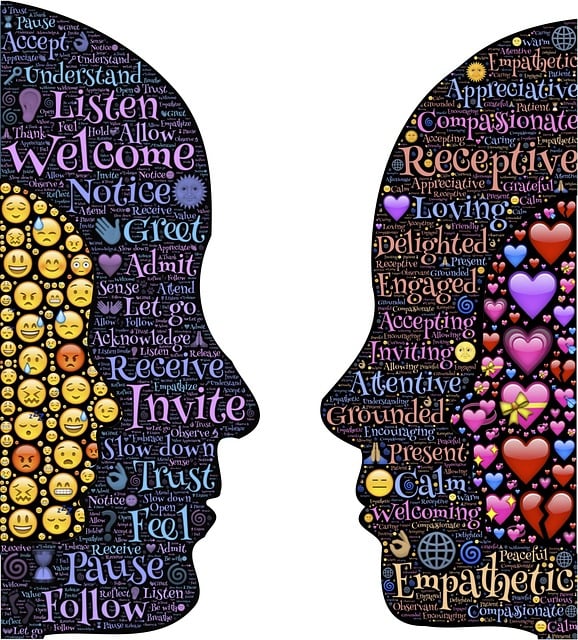The text emphasizes the mind-body connection as a cornerstone of emotional healing with regenerative care. It explains that physical symptoms often reflect internal emotional turmoil, and practices like mindfulness meditation, yoga, and deep breathing can restore harmony. Integrating these techniques into daily life reduces stress, improves sleep, and enhances mental clarity. Emotional healing through regenerative care is facilitated by diverse mind-body practices, including expressive arts, and strengthens resilience to navigate life's challenges. A holistic approach combining mindfulness, movement, and nature, coupled with a dedicated self-care routine, unlocks emotional healing, promotes balance, and fosters inner peace.
In today’s fast-paced world, achieving balance is essential for overall wellbeing, particularly in addressing emotional healing with regenerative care. This article delves into the profound mind-body connection and how regenerative practices can restore equilibrium. We explore techniques such as mindfulness, movement, and nature therapy to facilitate emotional release and recovery. By integrating these practices into a self-care routine, individuals can cultivate long-lasting emotional resilience, transforming challenges into opportunities for growth and harmony.
- Understanding the Mind-Body Connection for Emotional Healing
- The Role of Regenerative Practices in Restoring Balance
- Exploring Different Techniques for Emotional Release and Recovery
- Integrating Mindfulness, Movement, and Nature for Optimal Wellbeing
- Cultivating a Self-Care Routine for Long-Lasting Emotional Resilience
Understanding the Mind-Body Connection for Emotional Healing

Our minds and bodies are intricately linked, and this connection plays a pivotal role in our emotional well-being. Understanding this mind-body connection is essential for embracing emotional healing with regenerative care. When we experience stress or trauma, our bodies often manifest physical symptoms, reflecting the emotional turmoil occurring within. For instance, elevated stress levels can lead to increased heart rate and blood pressure, while prolonged anxiety might result in chronic muscle tension.
Regenerative practices like mindfulness meditation, yoga, and deep breathing exercises offer powerful tools to reconnect mind and body. These practices encourage us to become attuned to our internal experiences, allowing for the release of pent-up emotions and the cultivation of a deeper sense of calm. By fostering this harmonious relationship, emotional healing with regenerative care becomes a viable pathway towards lasting well-being.
The Role of Regenerative Practices in Restoring Balance

Regenerative mind-body practices play a pivotal role in restoring balance, addressing not just physical aspects but also delving into emotional healing with regenerative care. These practices, such as yoga, meditation, and mindfulness, work synergistically to reset our internal clocks, promoting harmony between the mind and body. By integrating these techniques into daily routines, individuals can experience reduced stress levels, improved sleep patterns, and heightened mental clarity—all essential components for achieving a balanced lifestyle.
Furthermore, regenerative care approaches like energy healing and nature-based therapies offer unique avenues for emotional healing. Engaging with these practices allows individuals to connect more deeply with themselves, fostering self-awareness and personal growth. In essence, these methods provide tools for navigating life’s challenges, enabling people to cultivate resilience and find equilibrium in their lives.
Exploring Different Techniques for Emotional Release and Recovery

Emotional release is a vital component of achieving balance and holistic healing through regenerative mind-body practices. Different techniques cater to diverse preferences, making it accessible for everyone to find their method of emotional recovery. One popular approach involves expressive arts, such as painting, dancing, or writing, which provide an outlet for processing and releasing repressed emotions.
Additionally, mindfulness practices like meditation and yoga offer profound ways to connect with one’s inner self, fostering self-awareness and emotional regulation. These regenerative care techniques not only aid in managing stress and anxiety but also promote a deeper sense of well-being. By exploring these options, individuals can unlock the path to emotional healing, ultimately contributing to their overall balance and resilience.
Integrating Mindfulness, Movement, and Nature for Optimal Wellbeing

In the quest for achieving balance and optimal wellbeing, integrating mindfulness, movement, and nature is a holistic approach that resonates deeply with the mind-body connection. Mindfulness practices, such as meditation and deep breathing exercises, allow individuals to tune into their inner selves, cultivating awareness of both physical sensations and emotional states. This heightened consciousness facilitates emotional healing with regenerative care, enabling one to recognize and release patterns of stress or trauma that may be hindering overall health.
Complementing mindfulness, regular movement through activities like yoga, tai chi, or even a mindful walk in nature, activates the body’s inherent capacity for self-healing. Combining physical movement with the calming presence of nature amplifies these regenerative effects. The soothing sounds of a forest, the scent of blooming flowers, and the gentle caress of a breeze not only rejuvenate the senses but also foster a profound sense of groundedness and tranquility. This harmonious blend of mindfulness, movement, and nature is key to unlocking emotional healing with regenerative care, leading to a balanced and fulfilling life.
Cultivating a Self-Care Routine for Long-Lasting Emotional Resilience

Cultivating a self-care routine is an essential aspect of achieving and maintaining emotional resilience, especially through regenerative mind-body practices. By incorporating intentional activities that nurture both your mental and physical well-being, you can experience profound emotional healing. This could include regular exercise, meditation, mindful breathing exercises, or engaging in creative outlets like art or writing. These practices not only reduce stress and promote relaxation but also foster a deeper connection with yourself.
A consistent self-care routine allows you to proactively manage your emotional health, enabling better coping mechanisms in the face of life’s challenges. It’s about recognizing that taking time for yourself is not a luxury but a necessity. Through dedicated self-care practices, individuals can enhance their ability to process and release difficult emotions, leading to improved overall emotional resilience and a greater sense of inner peace.
Achieving balance through regenerative mind-body practices is not just a trend, but a powerful tool for emotional healing with regenerative care. By integrating mindfulness, movement, and nature into our routines, we can restore equilibrium and build long-lasting emotional resilience. The key lies in understanding the profound connection between our minds and bodies and utilizing various techniques to facilitate emotional release and recovery. Embracing these practices allows us to navigate life’s challenges with grace and poise, cultivating a symphony of wellbeing that resonates within.
